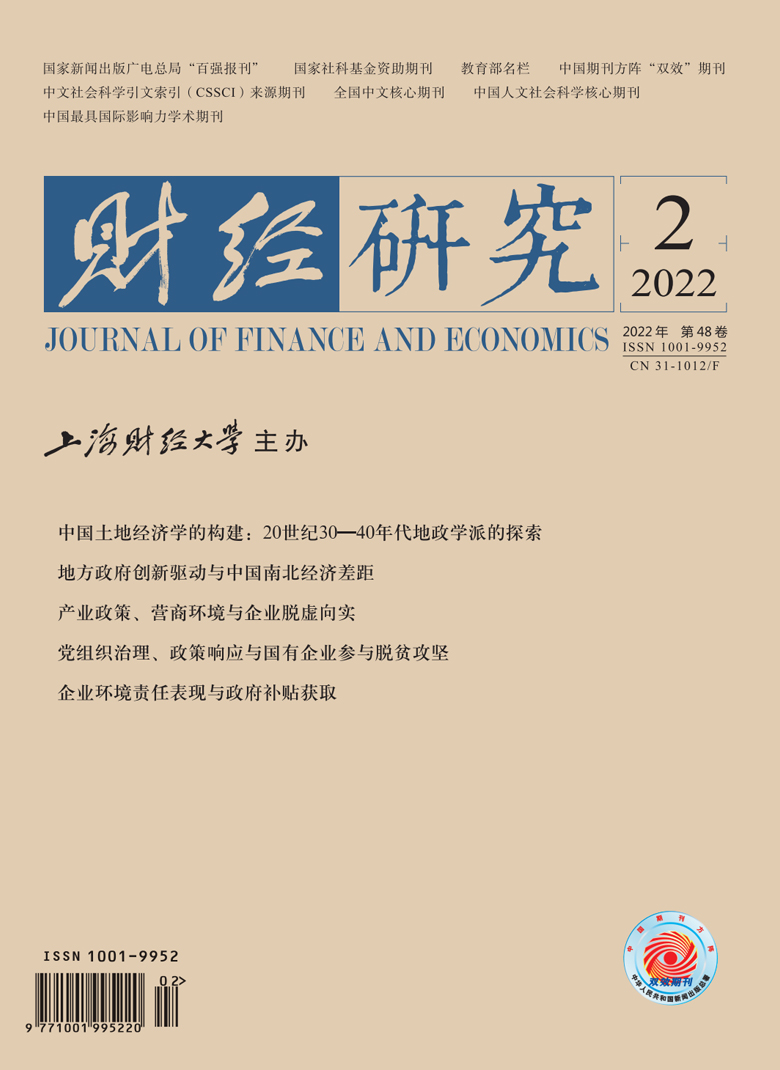有关企业社会责任的经济后果,一直存在“股东价值假说”和“管理层自利假说”的争论。文章从产品市场角度对此进行了分析,发现企业积极履行社会责任能够提高产品市场表现,支持了“股东价值假说”。截面检验发现,这种价值效应在产业链下游的企业、信任水平较高地区的企业以及拥有政治关联的民营企业中更加显著。路径分析表明,企业履行社会责任通过改善与大客户和员工的关系以及外部监督环境,帮助其获得产品市场竞争优势。进一步研究发现,企业社会责任的价值效应具有跨期持续性,且不存在避税效应,排除了管理层机会主义行为的替代性解释。文章的研究对厘清企业社会责任的真实影响具有积极意义,也为政府倡导企业积极承担社会责任提供了依据。
企业社会责任与产品市场表现
摘要
参考文献
1 程欣,邓大松. 社保投入有利于企业提高劳动生产率吗?−基于“中国企业—劳动力匹配调查”数据的实证研究[J]. 管理世界,2020,(3):90−101. DOI:10.3969/j.issn.1002-5502.2020.03.007
5 吉利,何熙琼,毛洪涛. “机会主义”还是“道德行为”?−履行社会责任公司的盈余管理行为研究[J]. 会计与经济研究,2014,(5):10−25. DOI:10.3969/j.issn.1009-6701.2014.05.002
6 李姝,谢晓嫣. 民营企业的社会责任、政治关联与债务融资−来自中国资本市场的经验证据[J]. 南开管理评论,2014,(6):30−40. DOI:10.3969/j.issn.1008-3448.2014.06.005
8 刘行,吕长江. 企业避税的战略效应−基于避税对企业产品市场绩效的影响研究[J]. 金融研究,2018,(7):158−173.
9 刘姝雯,刘建秋,阳旸,等. 企业社会责任与企业金融化:金融工具还是管理工具?[J]. 会计研究,2019,(9):57−64. DOI:10.3969/j.issn.1003-2886.2019.09.009
10 吕朝凤,陈汉鹏,López-Leyva S. 社会信任、不完全契约与长期经济增长[J]. 经济研究,2019,(3):4−20.
11 迈克尔·波特. 竞争战略: 分析产业和竞争者的技巧[M]. 陈小悦译. 北京: 华夏出版社, 1997.
12 权小锋,吴世农,尹洪英. 企业社会责任与股价崩盘风险:“价值利器”或“自利工具”?[J]. 经济研究,2015,(11):49−64.
15 宋献中,胡珺,李四海. 社会责任信息披露与股价崩盘风险−基于信息效应与声誉保险效应的路径分析[J]. 金融研究,2017,(4):161−175.
16 辛清泉,周静,胡方. 上市公司虚假陈述的产品市场后果[J]. 会计研究,2019,(3):25−31. DOI:10.3969/j.issn.1003-2886.2019.03.004
17 张维迎,柯荣住. 信任及其解释:来自中国的跨省调查分析[J]. 经济研究,2002,(10):59−70. DOI:10.3969/j.issn.1005-913X.2002.10.023
19 Ayers B C, Laplante S K, McGuire S T. Credit ratings and taxes: The effect of book-tax differences on ratings changes[J]. Contemporary Accounting Research,2010,27(2): 359−402. DOI:10.1111/j.1911-3846.2010.01011.x
20 Barnea A, Rubin A. Corporate social responsibility as a conflict between shareholders[J]. Journal of Business Ethics,2010,97(1): 71−86. DOI:10.1007/s10551-010-0496-z
21 Baron D P. Managerial contracting and corporate social responsibility[J]. Journal of Public Economics,2008,92(1−2): 268−288. DOI:10.1016/j.jpubeco.2007.05.008
22 Bhamra H S, Kuehn L A, Strebulaev I A. The aggregate dynamics of capital structure and macroeconomic risk[J]. The Review of Financial Studies,2010,23(12): 4187−4241. DOI:10.1093/rfs/hhq075
23 Desai M A, Dharmapala D. Corporate tax avoidance and firm value[J]. The Review of Economics and Statistics,2009,91(3): 537−546. DOI:10.1162/rest.91.3.537
24 Dyck A, Volchkova N, Zingales L. The corporate governance role of the media: Evidence from Russia[J]. The Journal of Finance,2008,63(3): 1093−1135. DOI:10.1111/j.1540-6261.2008.01353.x
25 Flammer C, Kacperczyk A. The impact of stakeholder orientation on innovation: Evidence from a natural experiment[J]. Management Science,2016,62(7): 1982−2001. DOI:10.1287/mnsc.2015.2229
26 Fresard L. Financial strength and product market behavior: The real effects of corporate cash holdings[J]. The Journal of Finance,2010,65(3): 1097−1122. DOI:10.1111/j.1540-6261.2010.01562.x
28 Jensen M C. Value maximization, stakeholder theory, and the corporate objective function[J]. Business Ethics Quarterly,2002,12(2): 235−256. DOI:10.2307/3857812
29 Jiang J. Beating earnings benchmarks and the cost of debt[J]. The Accounting Review,2008,83(2): 377−416. DOI:10.2308/accr.2008.83.2.377
30 Massa M, Zhang B H, Zhang H. The invisible hand of short selling: Does short selling discipline earnings management?[J]. The Review of Financial Studies,2015,28(6): 1701−1736. DOI:10.1093/rfs/hhu147
31 Miller E M. Risk, uncertainty, and divergence of opinion[J]. The Journal of Finance,1977,32(4): 1151−1168. DOI:10.1111/j.1540-6261.1977.tb03317.x
32 Nelling E, Webb E. Corporate social responsibility and financial performance: The “virtuous circle” revisited[J]. Review of Quantitative Finance and Accounting,2009,32(2): 197−209. DOI:10.1007/s11156-008-0090-y
33 Orlitzky M, Schmidt F L, Rynes S L. Corporate social and financial performance: A meta-analysis[J]. Organization Studies,2003,24(3): 403−441. DOI:10.1177/0170840603024003910
引用本文
蒋德权, 蓝梦. 企业社会责任与产品市场表现[J]. 财经研究, 2022, 48(2): 109-122.
导出参考文献,格式为:
下一篇:企业数字化转型与劳动收入份额
本期封面
相关论文





 7051
7051  12998
12998

